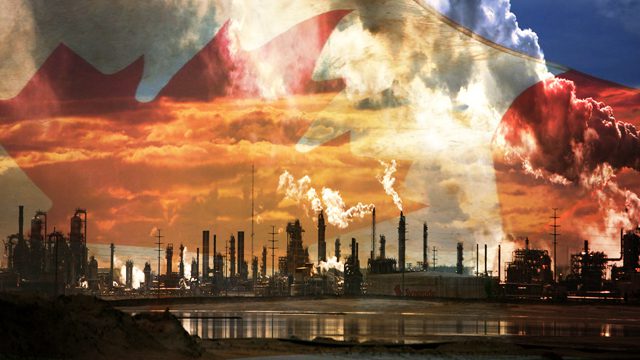
Addressing climate change and respecting Indigenous rights go hand in hand, says Eriel Deranger of Indigenous Climate Action. APTN file photo.
Indigenous climate leaders in Canada say parliament’s emergency debate on climate change Monday evening was necessary but inadequate.
On Monday House of Commons Speaker Geoffrey Regan approved the debate following requests from the Green Party, NDP and Liberal MP Nathaniel Erksine-Smith, who were responding to the International Panel on Climate Change’s (IPCC) Oct. 8 landmark report that outlined the dire circumstances the planet is in if it doesn’t do more to limit global warming to 1.5C.
Much of the discussion focused on Canada’s existing plan to reduce greenhouse gas emissions, but the debate is “30 years overdue,” according to Canada’s representative on the Inuit Circumpolar Council (ICC).
“Inuit have been bringing warnings about global warming to the international community as far back as the first Earth Summit in Rio de Janeiro in 1992,” ICC Canada President Monica Ell-Kanayuk said in a statement released Tuesday.
The IPCC, a body of the United Nations tasked with bringing together leading scientists and researchers from around the world to file reports on the status of climate change, warned in its landmark report that failing to limit global warming to 1.5C will result in significantly increased risks of major adverse impacts like floods, droughts, food insecurity, poverty, and a mass die-off of the ocean’s coral reefs by as soon as 2040, much earlier than previously anticipated.
To achieve this, the world only has 12 years, until 2030, to reduce emissions by 45 per cent below 2010 levels, the IPCC says.
The world has already warmed up about 1C compared to the mid-19th century and is experiencing the effects of that, including more violent storms, more frequent flooding, longer droughts and more forest fires.
Each 0.5 C degree of warming raises those risks significantly, with entire ecosystems possibly being eradicated, parts of the planet becoming too hot to sustain life and island nations getting drowned out entirely by rising sea levels.
To avoid the impacts of 1.5C warming, Canada would need to cut its annual emissions almost in half from current levels within 12 years to meet that goal but currently aims to cut them by a little more than 25 per cent by 2030.
The current climate plans — with carbon pricing, energy efficiencies, renewable power sources and technological innovations — don’t even get Canada to the existing goal.
Environment Minister Catherine McKenna said last week her plan is to implement the existing climate framework and reach the current targets before looking at more ambitious measures.
Emergency debate lacking
Clayton Thomas-Muller, a Cree climate campaigner for 350.org, told APTN News Monday he welcomed the debate but was skeptical the Liberals would take adequate action.
“Justin Trudeau has been suspiciously silent for the last week,” he said, adding the government’s response is “troubling” given the magnitude of the crisis and the “current situation of geopolitics in this country” with respect to “pipeline politics and Indigenous people.
“The fact of the matter is the IPCC report has told us that we have 12 years to get this stuff right. And that means that we have to have a significant shutting down of fossil fuel development.”
Thomas-Mueller said Canada “has to stop the expansion of the Alberta tar sands, and we need to significantly invest in renewable energy.”
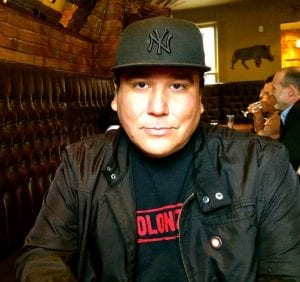
But the feds don’t appear to be taking their own commitments seriously, Thomas-Muller added, citing the government’s support for fracking and liquid natural gas development in northern British Columbia, its approval of offshore oil development in the Maritimes, and its expansion of the Alberta oil sands through its approval of Line 3 and its recent purchase of the Trans Mountain pipeline expansion.
“We’re in this very contradictory moment right now where the government of Canada is on an international platform saying we’re a climate leader, but domestically with their announcements of economic initiatives are saying we are not a climate leader, we are investing in technologies from the past.”
Eriel Deranger, from Athabasca Chipewyan First Nation and Executive Director of Indigenous Climate Action, says Monday’s emergency debate revealed what she calls a tendency among decision-makers “to lean in towards trying to save and buffer and pad the economy over actually trying to save the planet.”
She noted Green Party leader Elizabeth May was “the only one that came out with reality” in the debate.
“You’ve got one chance to protect your kids’ world, you’ve got one chance, and it’s expiring in about 10-12 years, to hold global average temperature to no more than 1.5 degrees,” May said Monday evening.
“If you miss that…you end up in a situation where the worst case scenario isn’t bad weather, it’s the collapse of our civilization and the extinction of millions of species, potentially including us.”
Deranger said the federal government’s approach to the climate crisis fails to address underlying causes, “the status quo of colonialism and capitalism,” which she argues are also at the root of Canada’s mistreatment of Indigenous peoples “under that premise of terra nullius and man’s domination over nature, which is in contravention to Indigenous values and cosmologies and rights.”
During the debate federal Minister of Climate Change and Environment Catherine McKenna touted the Liberals’ efforts to phase out coal production, and its investments in public transit, social housing and the renewable energy sector.
She also referenced the Liberals’ involvement of Indigenous communities in Canada’s climate strategy.
Canada presently has five climate-related programs that involve Indigenous communities, the bulk of which deal with monitoring and mitigation, not prevention or the “bottom-up” solutions Deranger says are needed, and which Indigenous people should be a part of.
“We don’t have self-determination. We’re not in positions of power. We’re not given any authority or autonomy or sovereignty over our lands and territories,” she says.
“We’re given a voice, yes…but we need to go beyond being given a voice and we need to be given actual power and control to determine what happens in our lands and territories.”
McKenna deflected criticism from the NDP and Greens by pointing to the Conservatives’ lack of action on climate change during their decade of governance under Stephen Harper.
Thomas-Muller and Deranger both said the conversation in parliament needs to radically shift, from party politics toward a recognition that climate justice and Indigenous rights go hand in hand and can be part of a transition to a just and sustainable economy based on clean renewable energy.
“There is eminent threat coming towards us, and we have the capacity to reallocate resources, to redistribute the way that we do things, to effectively do this in a real way to protect people and lives,” Deranger said. “And we’re not doing it.”
Thomas-Muller said Indigenous people and Canadians are paying attention to how decision-makers are responding to the crisis.
“We’ve got a big challenge ahead of us…moving forward into the 2019 election, and those running for office better take that into consideration.”
Only one of the 11 sitting Indigenous MPs spoke during Monday’s climate debate.
During his speech Liberal member for Winnipeg Centre Robert-Falcon Ouellette said the Liberals are working to implement a national carbon tax as one measure to reduce carbon emissions in Canada.
Ouellette took aim at Ontario, Saskatchewan and Manitoba, as well as the federal Conservatives, who are resisting the strategy.
The Liberals have given provinces time to come up with their own carbon tax scheme, otherwise say they will impose the tax in 2019.
Biodiversity and the Indigenous knowledge that protects it
Many on the front lines against fossil fuel development in Mi’kmaq, Secwepemc, Wet’suwet’en, Coast Salish, Anishinaabe and other territories are fighting for their inherent rights, but Deranger and Thomas-Muller say Canadians should understand they’re also fighting to preserve the sacred — Mother Earth — for everyone.
“We could quit building all the high intensity emission fossil fuel stuff today, and we would still need to preserve and nurture biodiversity to help bring our planet back to stabilization,” Deranger explains.

“And the reality is that Indigenous communities, land-based communities have literally been on the front lines of advocating for, nurturing and preserving, the biodiversity of this planet since time immemorial.
“We have literally been the reason why the planet hasn’t hit the tipping point,” she continues, pointing out that 80 percent of the world’s biodiversity is within recognized Indigenous lands and territories.
“We maintain a sacred and spiritual connection to those lands and territories that are critical for climate stabilization.
“It’s that knowledge, that understanding, that is going to be critical in connecting humanity back to nature in order for us not to continue to repeat the same mistakes over and over again.”
Thomas-Muller said he stands in solidarity with front line groups like the Unist’ot’en in northern B.C., “who are adamantly opposed to the exportation of fracked gas from Northeastern B.C. through salmon-producing rivers and streams.”
The Unist’ot’en, a Wet’suwet’en clan that has established a settlement on its traditional territory in the way of multiple proposed pipeline projects, has cited the need to limit climate change as one of the primary factors for its assertion of sovereignty over its title lands.
Deranger says she doesn’t want to perpetuate the idea that “all Indigenous people have some romanticized connection with land, but there are still many Indigenous peoples, knowledge holders, land users, that maintain a solid connection and understanding and intimacy with the land that has been passed down for generations. And it’s that connection that is so critical,” she explains.
She points out that climate scientists and others have recognized Indigenous peoples’ central role in addressing the climate crisis.
But none of this factored into Monday evening’s debate in the House of Commons, she says.
Instead, politicians remain silent when Indigenous people are criminalized for defending their lands and resisting fossil fuel extraction.
“When a government makes a determination that a project is not good for the country, everyone applauds. But when First Nations get up and oppose these projects…we are criminalized, we are made to look like we are breaking laws when we actually are only upholding our own laws.
“The reality is it’s our communities that have been safeguarding our lands and territories and the biodiversity of this planet—not just here in Canada but globally—and it’s time to recognize that when Indigenous communities are standing up for our lands and territories we need to start listening rather than criminalizing them.
“Those lands and territories are going to be critical for our survival, and it’s more than just about how much money we have in our bank account. It’s about whether or not we have clean water to drink, clean air to breathe, and food to nurture our minds, our bodies and our spirits.
“We are literally in the last 60 seconds of the 11th hour, and we don’t have any more time to be arguing the semantics and the economics of this anymore. This is literally life and death.”
Indigenous leaders in support of fossil fuel development
Athabasca Chipewyan First Nation Chief Allan Adam was for a long time firmly opposed to continued oil sands expansion in his people’s region, but earlier this year did an about-face on the issue and has since publicly called for First Nations to take an ownership stake in pipeline projects like Trans Mountain.
Deranger, who has worked for the First Nation, said the chief’s new position is “sad” and represents a sense of defeat after her people have worked hard to protect their land and territory from the harms of the fossil fuel industry.
“Colonialism and capitalism and systems of white supremacy are not just bound to white folks – they are pervasive, they are packaged and sold,” she said.
“In order to be successful you need to have money and a car and a home and you need to be part of the capitalist machine. And so much so that it’s been forced on a lot of communities.
“The reality is…they have literally beat us down and eroded our ability to have that connection to the land, through degradation and contamination.”
Deranger says many Indigenous people have been forced to adopt an “if you can’t beat ’em, join ’em” mentality when it comes to fighting against harmful policies or industries that harm their communities.
“There’s this pervasive attempt to continue to try to assimilate and coerce Indigenous communities,” she says. “And you wonder why communities are buckling – because they don’t have millions of dollars to enter into these review processes and legal cases to challenge these projects.
“It’s coercion and bribery at its finest, it’s another tactic of assimilation, and it’s not fair that we’re being used in this way because we have literally been painted into corners in our communities to accept this because is literally no other option.”
With files from the Canadian Press.




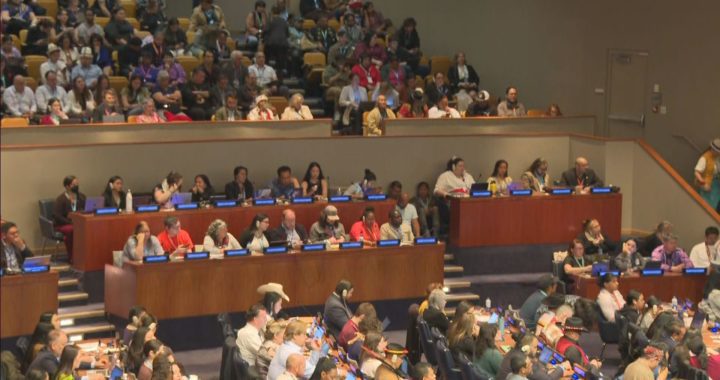
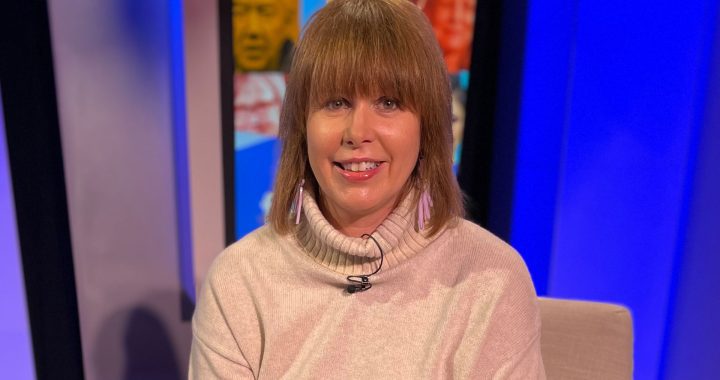
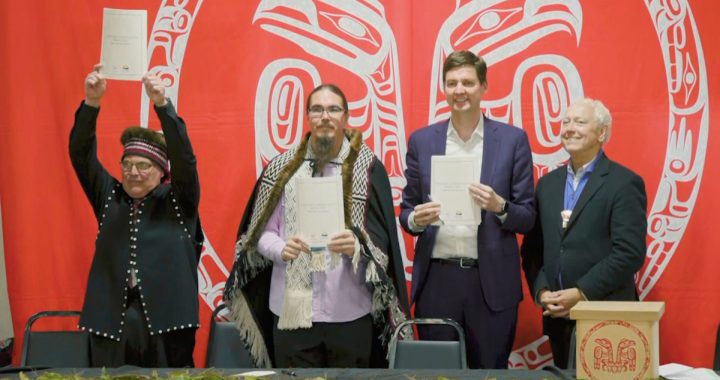
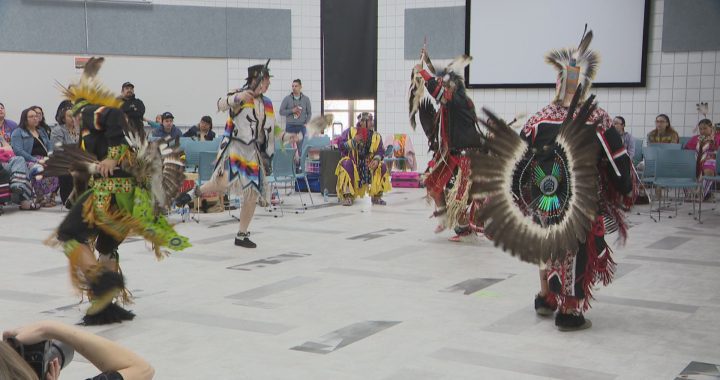
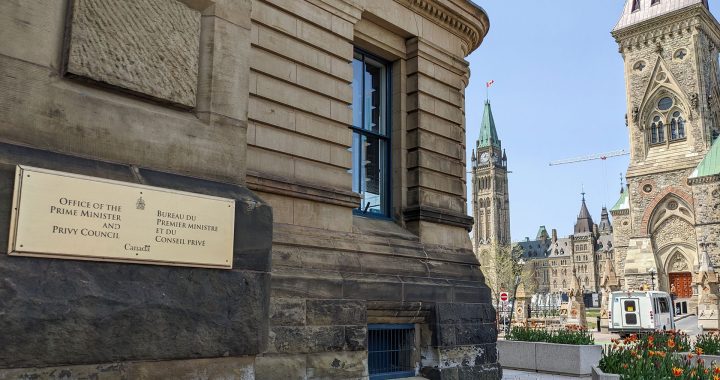
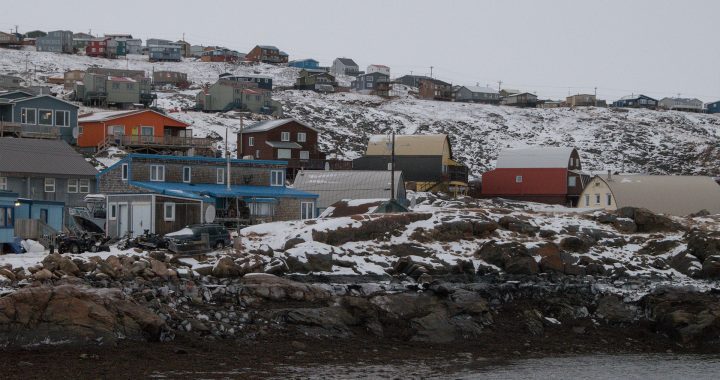
When all these seriously concerned “native environmentalists” come to be properly educated (not from whiteman’s system) rather from tribal Indians they would become more than a voice….we can only invite….
When all these seriously concerned “native environmentalists” come to be properly educated (not from whiteman’s system) rather from tribal Indians they would become more than a voice….we can only invite….
Excellent article that everyone should read. We need systemic change and we need it now!
Excellent article that everyone should read. We need systemic change and we need it now!